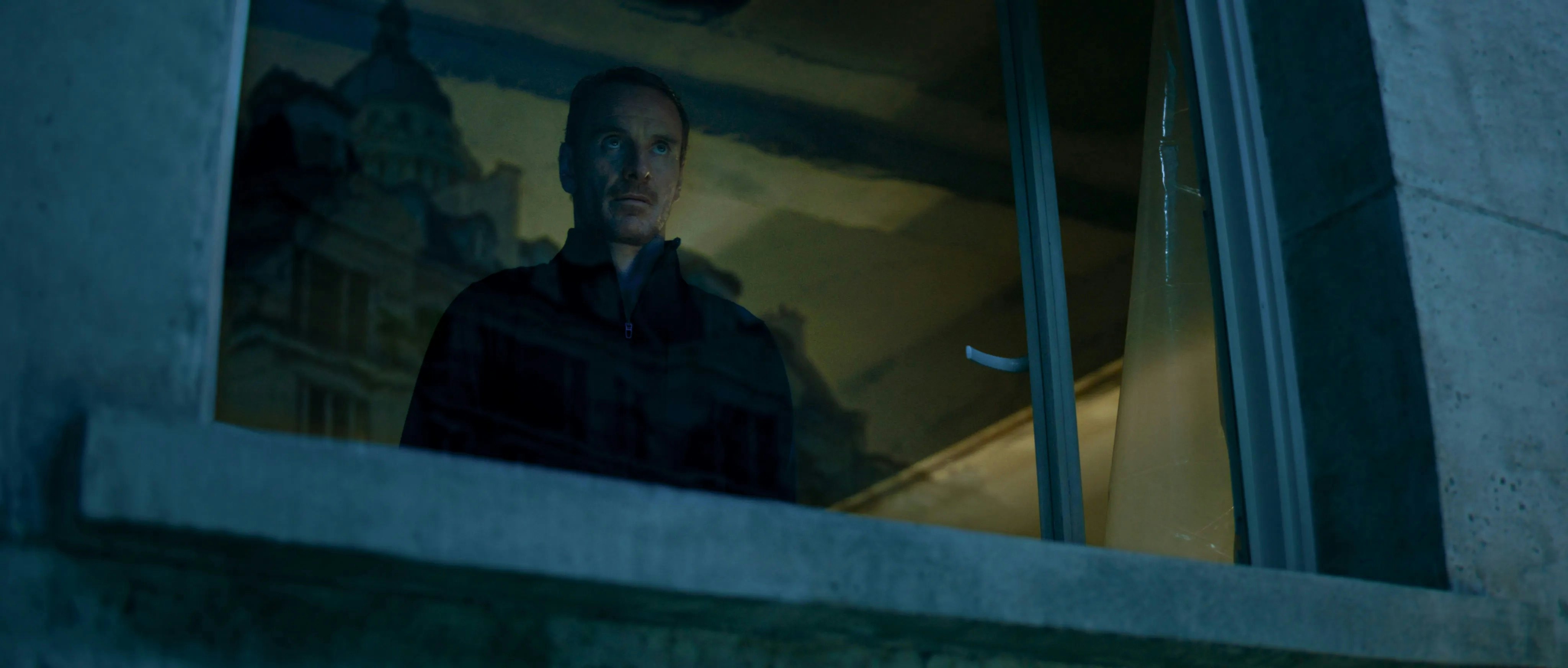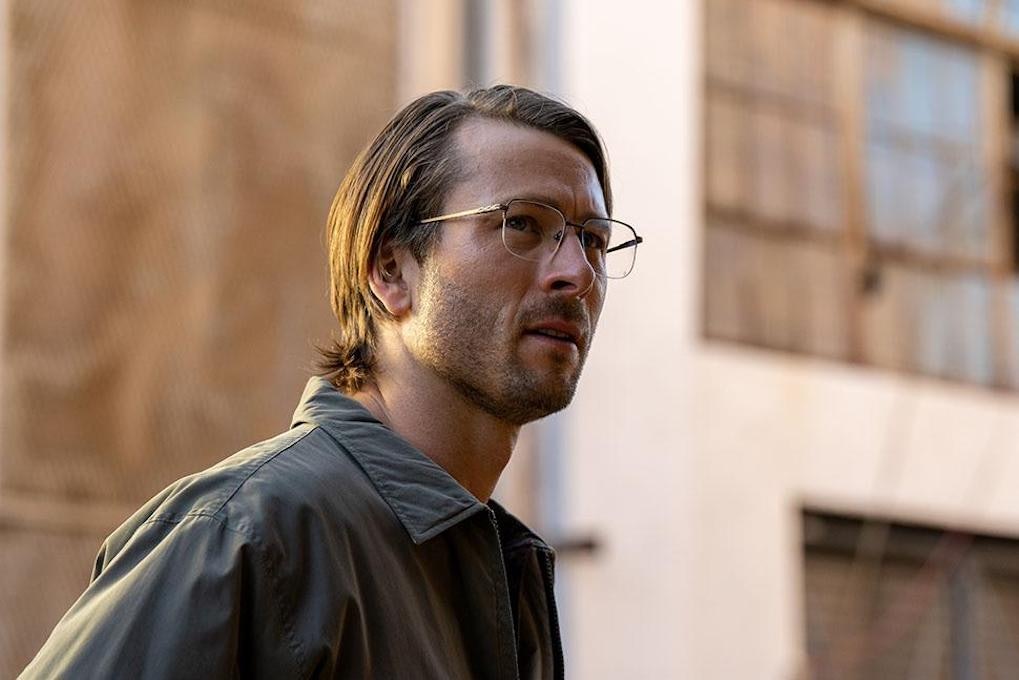
Are you in need of a hired killer? We know a guy who knows a guy… or two. They’re David Fincher and Richard Linklater, who just premiered their latest work at Venice Film Festival, and they’re both about hitmen. The Killer and Hit Man may not be imaginatively titled, but they are equally shrewd about where the assassin-for-hire archetype sits in our collective psyches. More interestingly, they reveal everything about the contrasting visions between two American filmmakers who, a few decades ago, helped define an explosively creative era in Hollywood.
Neither director went to film school, opting to learn the ropes in ways that counter the previous generation of Spielberg, Scorsese, et al. Both filmmakers witnessed firsthand the stagnation of creative voices in the ‘80s and sought to break free from them in their studio and independent work that followed, and their resistance to conform continues until today. Not content with repeating the steps of their forefathers, The Killer and Hit Man take the pop culture understanding of what a hitman is, acknowledge how contrived it is, and explore the severe emotional consequences of making that fantasy your life.

Fincher began his career shooting commercials and music videos, two sectors that invited more eye-catching creativity in the ‘80s, but were less about filmmaking than about impact. Fincher has always rejected the auteur label, preferring to be seen as a craftsman — made evident by his perfectionist attitude on-set and a clean visual style that seems sand-blasted of all personal touch (in fact, nothing could be further from the truth).
In many ways, his early filmmaking mirrors the plight of The Killer’s nameless assassin (Michael Fassbender) — a man of intimidating skill, but who can only use it in blunt, reductive ways that result in psychological burnout. Taking pride in your craft can be a curse — it means you’re hyper-aware when it’s being wasted by your superiors. You wonder if The Killer is David Fincher’s way of venting some suppressed gripes with working exclusively for Netflix for nearly a decade. (Although, judging by his dodgy comments on the Hollywood strikes, maybe not.)
The Killer stands out in Fincher’s oeuvre as one of his most overtly playful and, dare we say it, funny, thrillers since The Game. The film’s first act is one extended joke, with the Killer’s rehearsed, meticulous procedures and rhythms on a Parisian job unfolding patiently, stressing in voiceover not just how demanding the job is but how these demands have turned him into a ruthless machine. He then immediately screws up the hit. “Fuck,” he tells us.
It’s delivered like a delicious punchline, with the extended hype sequence completely undermined by the Killer’s incompetence — Fincher finds it amusing that this man has convinced himself he’s an unfeeling, inhuman weapon without realising he’s a normal guy, one who listens to The Smiths, misquotes writers he hasn’t read, and has to justify eating McDonald’s to himself. No one is capable of being the hitman the Killer insists he is, because even if you numb your instincts and emotions, you’re still susceptible to the mental and physical weaknesses of the human body.

Hit Man is more overtly comedic than The Killer, but equally interested in what the hitman persona means to us — Linklater just seems to love his fellow human beings a bit more. His films all feel like they’ve got a big, smirking grin across their faces (like the one Ethan Hawke wears throughout the Before Trilogy) as if they're equally smug and confused that they get to exist.
Linklater started in Austin, Texas underground film circles, self-funding his first films and having to be content with cult status until he broke out in the mid-’90s. He may have found his new muse in Glen Powell, who here co-writes and stars as real-life college professor-turned-undercover investigator Gary Johnson, who pretends to be a lethal killer to incriminate New Orleans’ low-life. Normally a nebbish, goofy divorcee, Gary transforms into his confident, intimidating, and downright sexy alter ego Ron.
Gary notes that while hitmen don’t really exist, their cultural imprint is so large that it’s impossible to convince people otherwise — and why would we when they’re happy to land themselves in jail trying to hire one? Linklater’s shaggy, loose filmmaking style is all over Hit Man with its extended riffs, crackling chemistry, and inclination to get very silly whenever possible.
Gary finds it liberating to perform as someone he doesn’t feel like in everyday life, and slowly his inner Ron starts meshing with his unassuming everyday demeanour — to the point where he starts dating an attractive suspect, Madison (Adria Arjona). For most of its runtime, Hit Man darts between silly costumes and voices and delightfully horny rom-com material, always driven by the titillating dangers of pretending you’re a violent, cool-blooded person. It’s about living a fantasy; acknowledging how goofy, but also fulfilling, it can be to let one infiltrate our lives. It's Linklater's whole deal: people driven by ambition and instincts who have to hastily grow up in order to reach catharsis. It's everything The Killer doesn't try to be: scrappy, lovable, and actively rooting for its protagonist. The Killer thinks acting like a hitman will break your brain; Hit Man argues it could set you free.

Both Fincher and Linklater are familiar with the cinematic history of hired killers, and both approach the history of cinematic killers with a playfulness that reminds us it's a lot more fun to not take these genre inventions too seriously. It's fitting that the films come from sly, clever artistic directors who rose to prominence after American independent directors stopped being stifled in the ‘80s — they don't treat the history of cinematic criminals as sacred and not to be riffed on, instead making films that strike the right balance between not compromising on vision, but trusting talented collaborators to enrich the film.
Where Fincher prioritizes behind-the-camera technicians, Linklater does with performers. Neither The Killer nor Hit Man are actually about being a hitman — arguably, they’re both about performing as one — but what they do offer is more interesting: fun, pulpy character studies that take hitmen seriously for their character's psychology and, well, not much elsewhere.







